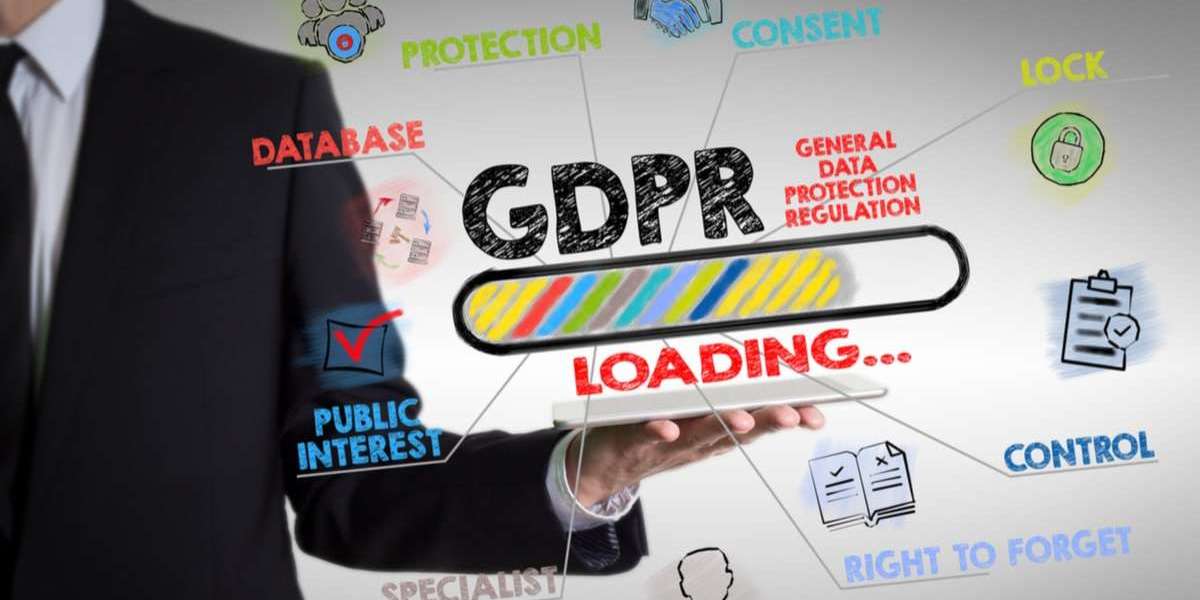The General Data Protection Regulation (GDPR) has reshaped the digital marketing landscape since its implementation in May 2018. Designed to protect the privacy and data rights of individuals within the European Union (EU), GDPR has set stringent rules for how businesses collect, store, and use personal data.
For businesses, especially digital marketing companies in Chennai, GDPR compliance is not just a legal obligation but also an opportunity to build trust with their audience. This article delves into the key aspects of GDPR and its profound impact on digital marketing strategies worldwide.
What is GDPR?
GDPR is a regulation established by the EU to enhance data protection for its citizens. It gives individuals greater control over their personal data and holds businesses accountable for transparent and ethical data practices. The regulation applies to any business that collects or processes data from EU residents, regardless of the company’s location.
Failure to comply with GDPR can result in severe penalties, including fines of up to €20 million or 4% of annual global revenue, whichever is higher.
Key Principles of GDPR
Before understanding its impact on digital marketing, it's crucial to grasp the core principles of GDPR:
Transparency: Businesses must clearly inform users about how their data will be used.
Consent: Explicit consent is required before collecting personal data.
Data Minimization: Only collect data necessary for a specific purpose.
Right to Access: Individuals have the right to access their data and request its deletion.
Accountability: Companies must demonstrate compliance through proper documentation and procedures.
These principles ensure that consumer data is handled ethically and securely, changing how digital marketing companies operate.
How GDPR Affects Digital Marketing
1. Revised Data Collection Practices
One of the most significant impacts of GDPR on digital marketing is the shift in data collection. Marketers can no longer use pre-checked boxes or obscure terms to obtain user consent. Instead, consent must be:
Freely given and specific.
Informed and unambiguous.
Easily withdrawable.
For marketers, this means fewer opportunities for indiscriminate data harvesting, but it also ensures that the data collected is from genuinely interested audiences.
2. Transparency in Email Marketing
GDPR has introduced stringent requirements for email marketing campaigns. Businesses can no longer add individuals to their mailing lists without explicit opt-in consent. Additionally:
Marketers must provide clear options for users to unsubscribe.
Businesses need to disclose how email data will be used.
While this reduces the size of email lists, it improves their quality, as recipients are genuinely interested in the content.
3. Impact on Behavioral Targeting and Advertising
Behavioral targeting, a cornerstone of many digital marketing strategies, has been significantly affected by GDPR. Businesses must obtain user consent before tracking cookies or using tools that monitor online behavior.
This has led to:
Increased use of cookie banners and consent management platforms.
Reduced data for retargeting campaigns, particularly in cases where users opt out.
However, GDPR has also encouraged SEO companies in Chennai to explore creative alternatives, such as contextual advertising, which targets users based on the content they consume rather than their personal data.
Opportunities for Digital Marketers
While GDPR presents challenges, it also offers opportunities to build stronger, trust-based relationships with customers.
1. Focus on Quality Over Quantity
GDPR has shifted the focus from amassing large amounts of data to collecting high-quality, actionable insights. By targeting smaller but more engaged audiences, businesses can achieve better campaign results.
2. Enhanced Customer Trust
Transparency and ethical practices foster trust. Businesses that comply with GDPR demonstrate their commitment to protecting customer data, enhancing brand loyalty and reputation.
3. Improved Personalization Through First-Party Data
Instead of relying on third-party data, marketers are now investing in first-party data—information collected directly from customers. This data is often more reliable and allows for personalized marketing strategies that align with GDPR principles.
Practical Steps for GDPR Compliance in Digital Marketing
1. Conduct a Data Audit
Identify what data you collect, how it is stored, and whether you have the necessary permissions. Remove any data that doesn’t meet GDPR standards.
2. Update Privacy Policies
Ensure your privacy policies are transparent, accessible, and written in plain language. Clearly explain how user data is collected, used, and stored.
3. Implement Consent Mechanisms
Use explicit opt-in mechanisms for data collection, such as checkboxes or pop-up banners. Allow users to manage and withdraw their consent easily.
4. Train Your Team
Educate your marketing team about GDPR requirements to ensure all campaigns align with the regulation.
5. Work with GDPR-Compliant Vendors
If you collaborate with third-party tools or services, such as analytics platforms or advertising networks, ensure they comply with GDPR standards.
The Global Impact of GDPR
Although GDPR is an EU regulation, its effects are global. Many non-EU businesses, especially branding companies in Chennai, have adopted GDPR-compliant practices to cater to international audiences. Additionally, GDPR has inspired similar data protection laws worldwide, such as the California Consumer Privacy Act (CCPA) in the United States.
GDPR has transformed the way businesses approach digital marketing by prioritizing transparency, consent, and customer rights. While it has posed challenges, such as limiting access to data for marketing purposes, it has also encouraged ethical practices and fostered trust with consumers.
For digital marketing companies, GDPR compliance is not just a legal necessity but a strategic advantage. By embracing GDPR’s principles, businesses can build meaningful connections with their audience, enhance brand loyalty, and navigate the evolving landscape of data-driven marketing with confidence.








